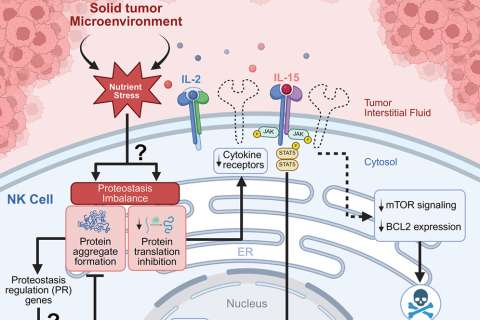A 22-year-old Hollywood stuntman turned to palliative care when his treatment for lymphoma coincided with recurrent infections in his abdomen that made it hard for him to work. The palliative care team coordinated with his team of physicians to arrange an urgent CT scan, which led to an outpatient procedure that helped alleviate the infections.
A 68-year-old woman worked with a palliative care team during her years-long battle against metastatic breast cancer. A self-described “Energizer bunny,” she talked with the team about continuing treatment as long as she was physically and mentally strong enough to travel regularly to visit family. If she couldn’t do that, she said, she’d rather stop treatment and focus on being comfortable at home.
Palliative care is a relatively new field that isn’t always well understood by patients or health care providers, says Katelyn Stepanyan, MD, part of UCLA Health’s palliative care team. She shared these patient experiences to illustrate some of the ways palliative care teams can support people experiencing serious illness.
“We define palliative care as an extra layer of support to make living with serious illness easier, both for the person and for those who help care for them,” Dr. Stepanyan said during “What Palliative Care Can Do for You,” a virtual workshop presented by the Simms/Mann-UCLA Center for Integrative Oncology. “We work alongside your doctors as extra support, extra expertise and really serve as consultants.”
Here are some of the ways palliative care can help patients and their families:
• Improve quality of life: “Every individual differs in terms of what’s most important to their quality of life — how they define it, how they experience it,” said Delia Cortez, LCSW, another palliative care provider at UCLA Health. “You can have good quality of life even while undergoing treatment for your illness.”
Palliative care teams can help improve quality of life by improving physical symptoms such as pain, nausea, constipation and shortness of breath. They can also help address the “emotional and psychological burdens” that can be great sources of stress to people living with or caring for those with a serious illness, Cortez said during the workshop.
For one patient, this might look like getting help in discussing her illness with her grandchildren. For another, it could be about managing symptoms so he can return to work and complete long-held travel plans.
• Coordinate communication among doctors: “I often hear from my patients both inside the hospital and in clinic that sometimes they feel they’re not getting clear messages and clear communication about what’s going on with their illness and what the plan is,” said Dr. Stepanyan. “That’s where our team can come in and help bridge that gap and talk with the other people on the care team to really help get the patient and their family the information that they deserve.”
Streamlining this communication might help a patient avoid a visit to the emergency department or hospital admission, she said, or it could expedite getting them into the hospital, if that’s what’s needed.
• Help patients make sense of information: “Sometimes patients, families, don’t even know what choices they have, what options they have,” Cortez said. Palliative care teams can help patients advocate for the kinds of treatments and health approaches that make the best sense for their lives and desires, she said.
For example, when a woman was diagnosed with multiple system atrophy, a neurological illness that leads to difficulty breathing, talking and eating, her most important aim was to attend her son’s wedding a year later. This goal helped inform her treatment path.
Conversations about what matters to a person facing illness and the effects on their loved ones can also help support family members, Cortez said.
“They’re given space to share their concerns, to share their worries, and also their goals and their hopes,” she said. “And that helps develop the plan of care — however it may look, however they may define quality of life.”
Accessing palliative care
MediCal and managed-care health insurance plans in California provide access to palliative care, Cortez said, adding that palliative care providers can help at any stage of serious illness. UCLA Health offers palliative care services in Santa Monica, Westwood, Westlake Village and virtually.
“We encourage you to meet with a palliative care provider and just explore if there are needs that we can help with,” Dr. Stepanyan said. “You and your loved ones do not have to navigate serious illness alone.”





